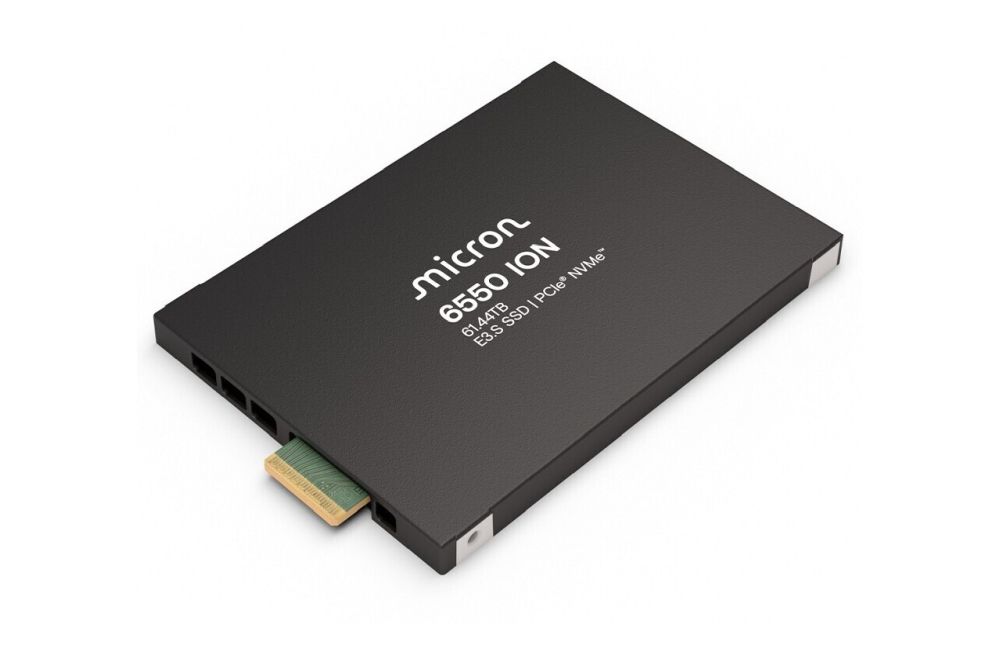Promising to provide best-in-class performance, energy efficiency, endurance, security, and rack density for exascale data center deployments, the 6550 ION is aimed to be used in high-capacity NVMe workloads such as networked AI data lakes, ingest, data preparation and check pointing, file and object storage, public cloud storage, analytic databases, and content delivery.
"The Micron 6550 ION achieves a remarkable 12 GB/s while using just 20 watts of power, setting a new standard in data center performance and energy efficiency," said Alvaro Toledo, vice president and general manager of Micron's Data Center Storage Group. "Featuring a first-to-market 60TB capacity in an E3.S form factor and up to 20% better energy efficiency than competitive drives, the Micron 6550 ION is a game-changer for high-capacity storage solutions to address the insatiable capacity and power demands of AI workloads."
The Micron 6550 ION is not only the industry's first E3.S PCIe Gen 5 60TB SSD, but also the first one to bring OCP 2.5 support with active state power management (ASPM), leading up to improved energy efficiency of up ot 20 percent when idling. Micron is also using the new G8 NAND.
Performance-wise, Micron is promising up to 179% faster sequential reads and 179% higher read bandwidth per watt, 150% faster sequential writes and 213% higher write bandwidth per watt, and 80% faster random reads and 99% higher read IOPS per watt, compared to competing 60TB drives.
According to Micron, the new 6550 ION SSD is now available for sampling globally and is part of Micron's industry-leading data center SSD portfolio. You can check out more details over at the product page.





